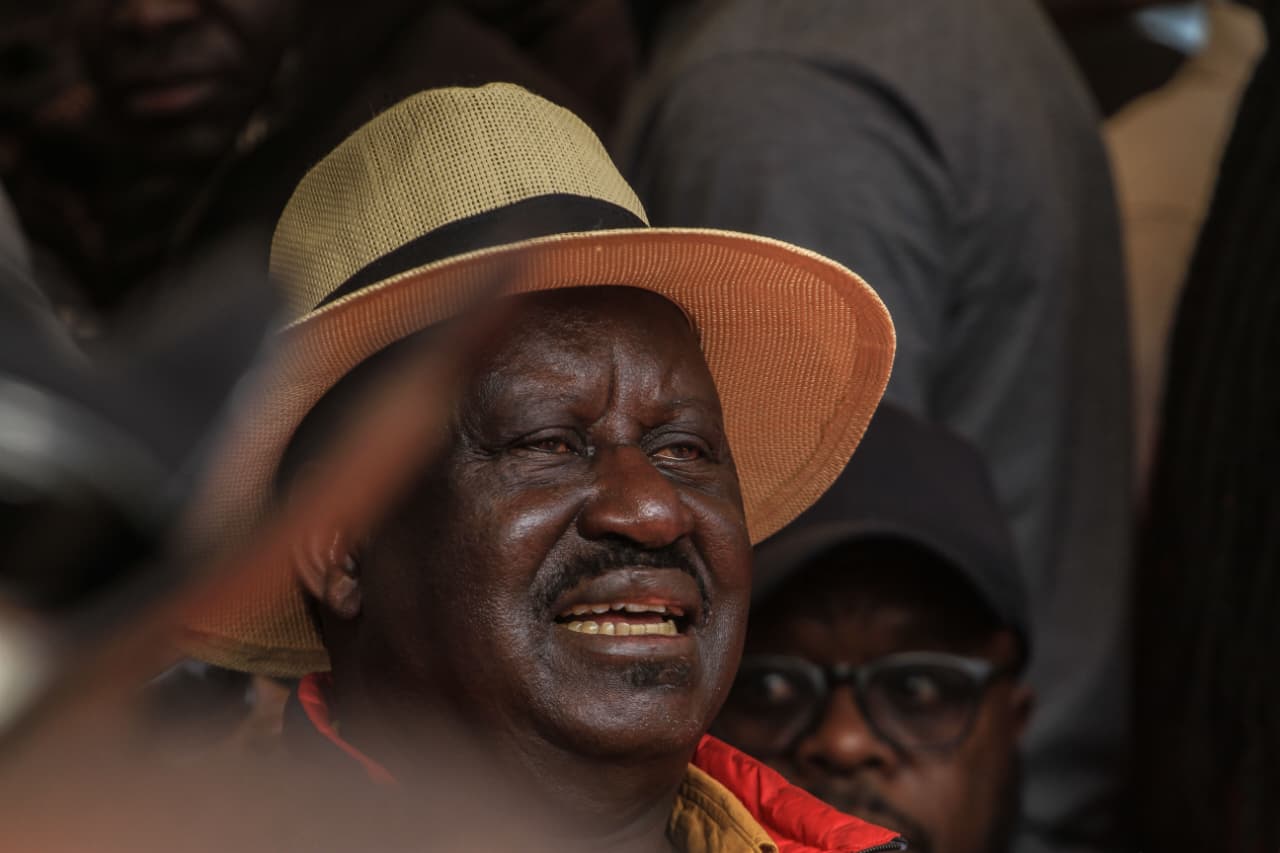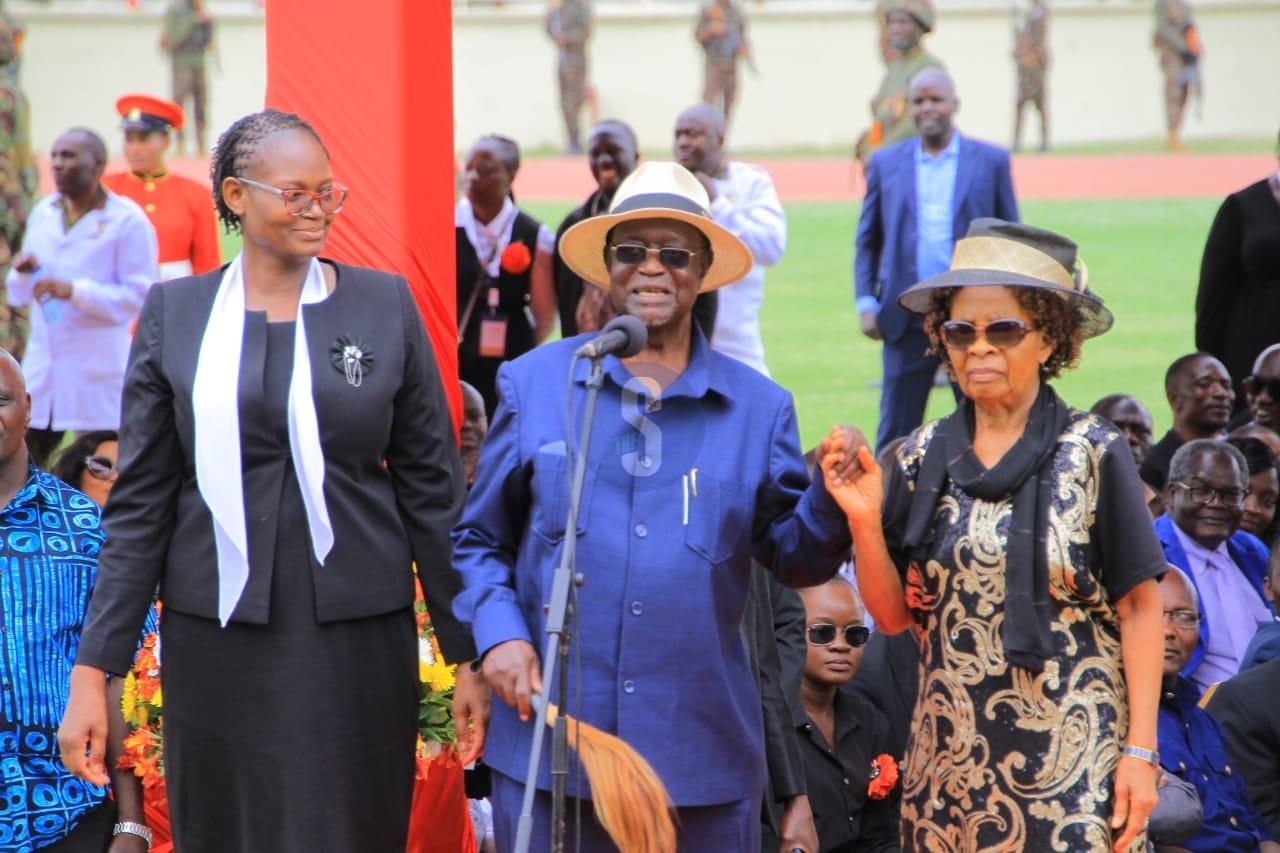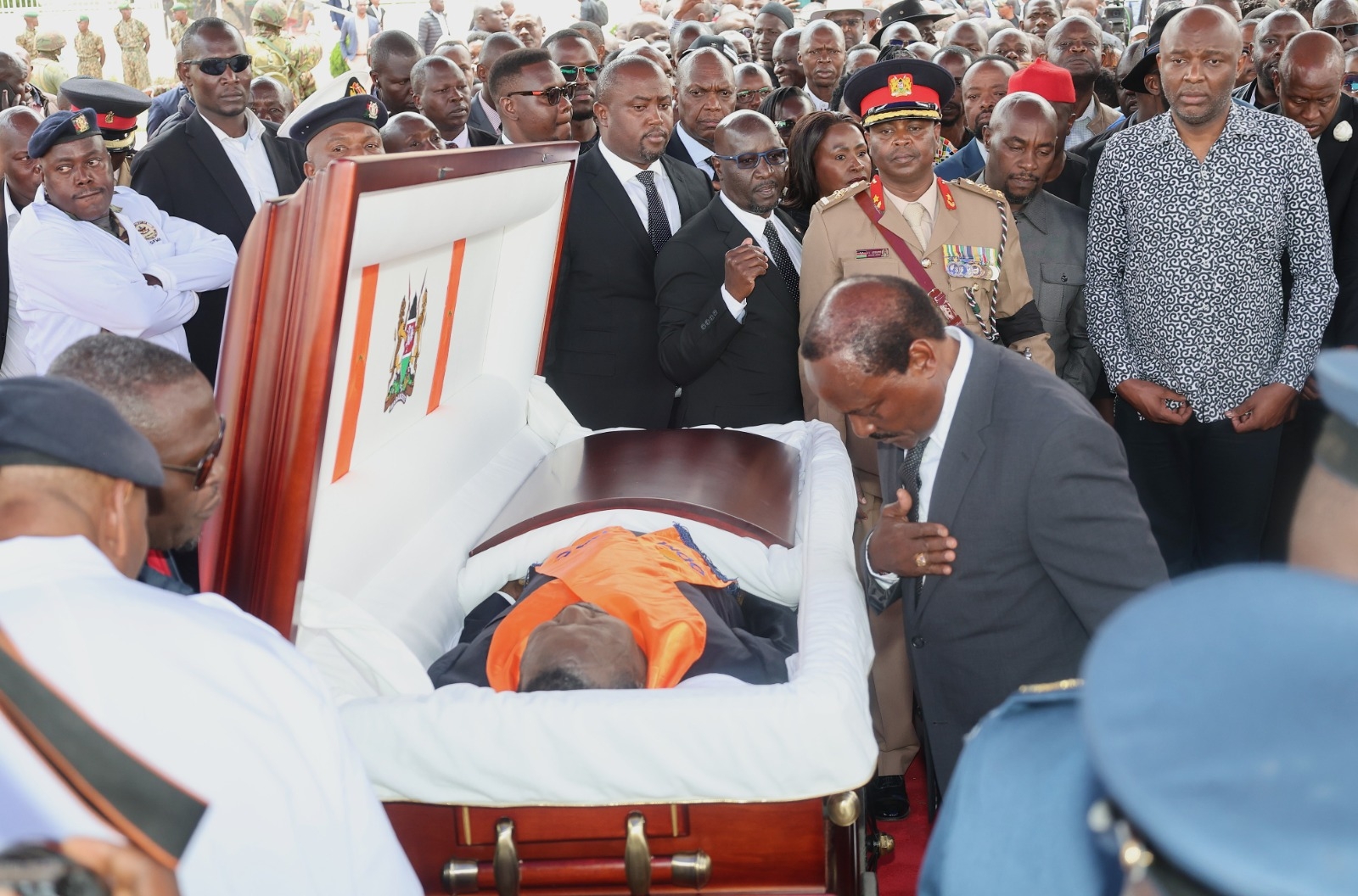

A day after the failed coup on August 1, 1982, Raila Odinga’s resilience in the face of brutal challenges was on display. He adamantly refused to give the Special Branch (secret service) a confession despite days of beatings and humiliation.
From being hit repeatedly on the head with wooden sticks, being kept in darkened cells with blinding light, and water-boarded the unflinching courage the ODM boss later displayed in his politics was honed in the years of detention.
In his autobiography, 'Raila Odinga: Flame of Freedom' with Sarah Elderkin, the former Prime Minister recounts his brutal encounter with the state interrogators, who used every method of violence in book to extract a confession from him but he held his ground.
Days after the attempted coup, the book says, he heard word from friends that the police were looking for him and acting on his instincts one evening, he went to hide at lawyer Ooki Ooko Ombaka’s house and not in his Kileleshwa house, spending the night there.
But the following morning, the police would get hold of his driver and force him to take them to where Raila had slept.
They took him to the Central police station, where he was booked and told to wait.
“After some time, I was taken across the road to the Special Branch offices located just on the other side of University Way, and housed in a suite of rooms above a Persian carpet shop on the corner of Muindi Mbingu Street. People working in the vicinity regularly found themselves an unwilling audience to screams that emanated from inside the offices as those unfortunate enough to be Special Branch guests were tortured,” it says.
Special Branch interrogation began civilly but degenerated into pitiless violence.
Sleuths asked him to confess and provide more information on names that were being dropped but he maintained he knew nothing about the event and the people.
“They told me I knew the people they were mentioning and they wanted me to tell as much about them as I could. They suggested that perhaps people were trying to frame me, so it would be in my interest to cooperate.”
On the next day of questioning, head of Special Branch Josia Kipkirui Rono faced him in the interrogation, and there was no more niceness.
Raila maintained his innocence, that he did not know the things he was being asked.
“I was determined not to be forced into any confession, so despite the way I could see things were going I stuck to my story. This enraged Rono and he turned wild.
“He grabbed a leg of the wooden table and snapped it off with brute force, then began laying about my head and shoulders with it. The blows to my head dazed me and I fell to the floor, and as I lay there Rono and the others jumped on my chest and my genitals. Through the blinding pain, I heard them cock their guns, then Rono’s voice; I was either going to speak and tell the truth or I was dead meat. I waited for the end….but it did not come.”
After a pause, Rono abruptly holstered his gun and his officers followed suit. He ordered that I be returned to the cells and brought back in the morning."
The third day of interrogation was a repeat of day two but Raila maintained his refusal to answer any questions.
At the end of the day, he was moved to Kilimani police station from Central where he spent two days.
“At the end of day two in the cell, I was covered by lice, which had caused lumpy swellings all around my waist and down my groin. The cell I shared was packed and filthy and the nature of our circumstances led many to loose bowel.”
The goes on: “There was a bucket in the corner of the room but it was woefully inadequate and by the end of the night the floor was covered in excrement, urine and vomit. Most of those with me were moved in the morning. I was left alone and was given a bucket and told to clean up the mess.”













